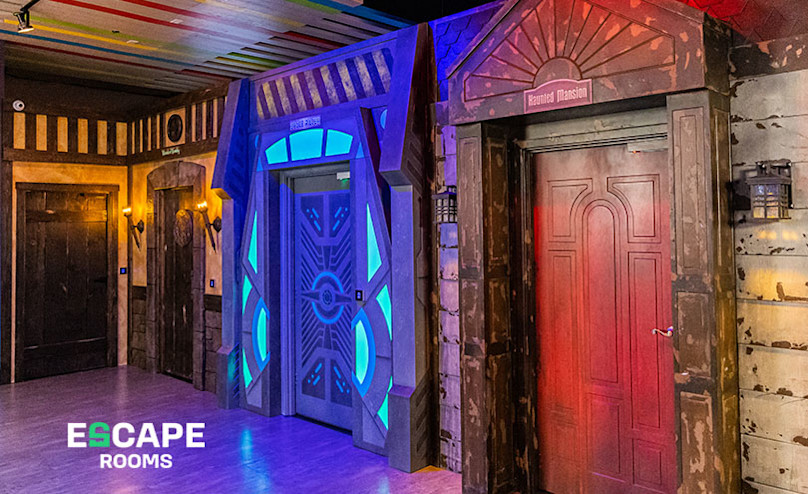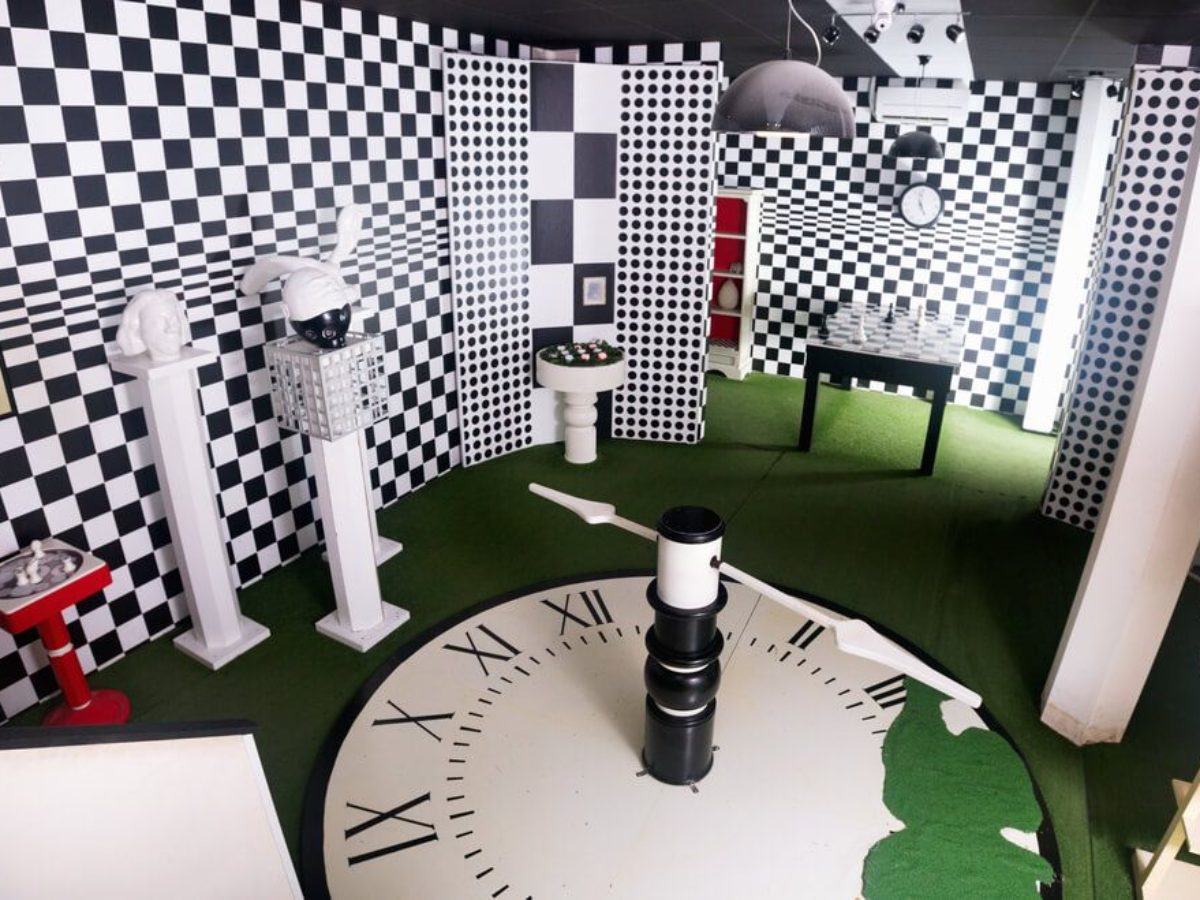Enjoyable and Challenging Escape Room-- Plan Your Following Experience
Enjoyable and Challenging Escape Room-- Plan Your Following Experience
Blog Article
Team Approaches: How to Work together Effectively in an Escape Space
Navigating the complexities of a retreat space requires greater than plain enthusiasm; it requires a well-coordinated approach based in clear communication, critical duty assignments, and adept time monitoring. Groups should actively listen to every member's insights, designate roles that line up with private staminas, and preserve regular check-ins to make sure emphasis and prevent redundancy. By promoting an environment that values communication and flexibility, groups can considerably enhance their efficiency and success rates. The nuances of these techniques can transform the experience, but exactly how specifically can they be implemented to take full advantage of the possibility for success?
Establish Clear Communication

To assist in clear interaction, it is essential to assign a central factor of get in touch with for information dissemination. This role entails summarizing searchings for and suggested strategies to ensure every person continues to be on the exact same web page. Furthermore, taking on an organized approach to discussions can protect against disorderly exchanges. Short, concentrated updates from each team participant can maintain the group educated without overwhelming them with info - best escape room.

Designate Roles Purposefully
While clear communication establishes the foundation for efficient synergy, assigning duties tactically makes sure that each employee's staminas are used effectively. In a retreat room situation, the time-sensitive and intricate nature of difficulties demands an efficient technique to job delegation. By identifying and leveraging specific expertises, groups can optimize their analytical capabilities and improve total performance.
First, evaluate the unique abilities and characteristics of each participant. As an example, somebody with an eager eye for information may master discovering hidden items, while a sensible thinker could be better fit to addressing problems - best escape room. It's similarly vital to have a leader who can oversee progression, take care of the timeline, and make crucial calls when required. This function typically needs strong organizational and social abilities.
Second, make sure that functions are flexible and versatile. As new difficulties arise, the team has to be able to pivot, reallocating tasks as required. This adaptability aids keep energy and protects against bottlenecks that might happen because of inflexible role jobs.
Ultimately, a calculated strategy to function project not just makes the most of the strengths of each employee however additionally fosters a natural setting, driving the group towards a successful retreat.
Make Use Of Diverse Skills
Identifying and harnessing the varied abilities within your group can significantly elevate your efficiency in a getaway space. Each staff member brings distinct toughness to the table, and effectively leveraging these abilities can quicken problem-solving and enhance general effectiveness. For instance, a team member with strong logical skills could stand out at figuring out complicated codes or patterns, while one more with eager empirical abilities might quickly spot concealed ideas that could neglect.
Reliable interaction is crucial to utilizing these diverse abilities. Motivate group participants to articulate their insights and concepts quickly, making sure that all prospective options are taken into consideration. This comprehensive strategy fosters a vibrant setting where creativity and vital thinking can grow. In addition, appointing jobs that align with each participant's staminas can avoid traffic jams and make sure that progress is continual.
In addition, diversity in abilities often equates to diversity in thinking designs, which is very useful in a getaway room setting. While some obstacles might require logical thinking and precision, others may gain from creative and side reasoning. By identifying and leveraging this diversity, groups can address a more comprehensive variety of challenges better, thereby raising their opportunities of an effective escape.
Manage Time Successfully

First, allot first mins for a fast survey of the area. Recognize visible challenges and separate jobs based upon team members' staminas, making certain that no one is still. Establish internal time checkpoints to assess development regularly; as an example, goal to have half the problems addressed by the blog here mid-point of the read here game. This practice can aid maintain the group concentrated and stop time from slipping away unnoticed.
Furthermore, prevent one-track mind. If a puzzle is taking as well long, revolve employee or move on to one more difficulty, returning later on with fresh viewpoints. Communication is critical-- keep every person upgraded on solved challenges and remaining tasks to prevent repetitive initiatives.
Finally, use any kind of hints or hints sparingly however strategically - best escape room. Recognizing when to request help can save useful time. By adhering to these time monitoring concepts, groups can substantially improve their possibilities of a successful and delightful escape space experience
Debrief and Show
Reflection is an important facet of team advancement and renovation in the context of escape spaces. As soon as the challenge is finished, whether effectively or otherwise, it is important for the group to take part in a structured debriefing session. This procedure permits employee to assess their performance, recognize strengths, and identify locations for renovation.
Begin the debrief by discussing what went well. Highlight certain instances of efficient communication, problem-solving, and partnership. Identifying these positive behaviors strengthens them and encourages their repeating in future obstacles.
Next, deal with the obstacles came across. Review minutes visit of complication, miscommunication, or inefficient approaches. Encourage an open and useful discussion where employee can share their viewpoints without anxiety of objection. This cultivates a society of continual renovation and discovering.
Conclusion
Finally, successful collaboration in an escape room is predicated upon clear interaction, critical function jobs, the effective utilization of varied abilities, and skillful time management. Regular check-ins and organized debriefings are essential for preserving focus and promoting continuous enhancement. By developing a cohesive and flexible group atmosphere, the chance of successfully solving challenges and accomplishing the goal of getting away the area is dramatically enhanced. This strategy not only guarantees success but additionally promotes collective growth and discovering.
Report this page